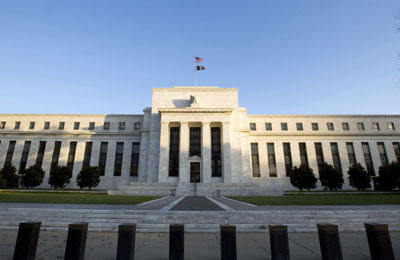
Hoping for answers to three big questions
London, February 25, 2013
By Alan Wheatley, Global Economics Correspondent
This week should bring clarity on three major issues hanging over the world economy: might the Federal Reserve withdraw monetary stimulus sooner rather than later? Will Italy elect a stable, reform-minded government? Will Japan pick a central bank chief determined to end deflation?
After a set of Fed minutes last week initially interpreted as hawkish, most economists expect Chairman Ben Bernanke to use an appearance before Congress to reaffirm that, in the words of St. Louis Fed President James Bullard on Friday, "Fed policy is very easy right now and is going to stay easy for a long time".
The US central bank is committed to making open-ended bond purchases, currently $85 billion a month, until unemployment falls to 6.5 percent from 7.9 percent now as long as inflation does not top 2.5 percent.
But parts of the financial markets have been red hot, prompting some Fed policy makers to wonder whether to start reversing policy before the unemployment target is reached.
The labour market has been slowly improving, with 200,000 new jobs a month added on average between November and January. But the encouraging trend will go into reverse if deadlock in budget talks triggers across-the-board federal spending cuts on March 1.
Ethan Harris, an economist with Bank of America Merrill Lynch in New York, estimates that the cuts would slow the pace of growth by 1.5 percentage points to just 1 percent next quarter, with job growth averaging less than 100,000 per month.
With the US economy still not out of the woods, the Fed will probably not raise short-term interest rates from their present range of zero to 0.25 percent before early 2015, said Nariman Behravesh, chief economist at IHS Global Insight in Lexington, Mass.
But he expects Bernanke to make a nod to the unease among some of his colleagues about the open-ended nature of the Fed's asset purchases when he testifies to lawmakers on Tuesday and Wednesday.
"As an acknowledgement of some of the growing concerns about the potential impact of all this liquidity getting pumped into the economy, he will probably say more about exit strategies and more about keeping an eye on inflationary pressures than he has done before," Behravesh said.
ITALY CHOOSES
By the time Bernanke speaks, investors should know the result of Italy's general election, held over Sunday and Monday. The outcome is highly uncertain.
Centre-left leader Pier Luigi Bersani is expected to garner most votes but might not be able to form a stable majority - a potential recipe for renewed worries about the euro zone as a whole given Italy's stagnant economy, woeful productivity and fast-rising labour costs.
Even in the event of a hung parliament, however, a solution would be found to form a government that can continue Italy's painful reform process, according to Riccardo Barbieri, chief European economist with Mizuho in London.
"This does not mean that the elections are irrelevant: they are critically important, as they will determine the degree of 'ownership' of the reform programme, its ultimate chances of success, and thus the performance of the economy and the sustainability of public debt," he told clients.
JAPAN'S ABE CHOOSES
With its low growth and high government debt, Italy shares two important characteristics with Japan.
The latter's new prime minister, Shinzo Abe, is drumming up political support in Tokyo to appoint a central bank chief wholeheartedly committed to ending two decades of debilitating deflation. An announcement is due this week.
Despite Abe's clear election mandate to root out deflation, Behravesh acknowledged that the Bank of Japan has a long history of dragging its feet on the matter. There was also a question whether Abe would be able to deliver effectively the massive fiscal stimulus he has promised.
"That said, I'm a little more worried about Italy than Japan," he said. "Japan has a pretty good shot of having positive growth this year. Italy does not."
On the data front, revised figures are likely to show that the U.S. economy eked out modest growth last quarter, rather than contracting as initially thought; January's durable goods orders probably gave back most of December's chunky gain.
China's official purchasing managers' index for February is forecast to have held above the 50 mark that signals expansion, while economists hope the budgets of South Africa and, in particular, India will stress long-awaited structural reforms.
As India's is the last full-year budget before a general election due in May 2014, Finance Minister Palaniappan Chidambaram will want to please voters. At the same time, Fitch and Standard and Poor's are reviewing India's investment grade credit rating for a possible downgrade to junk status.
"As such, we expect the government to announce some populist schemes, but all within the limits of fiscal prudence," economists at Nomura said in a report. - Reuters







